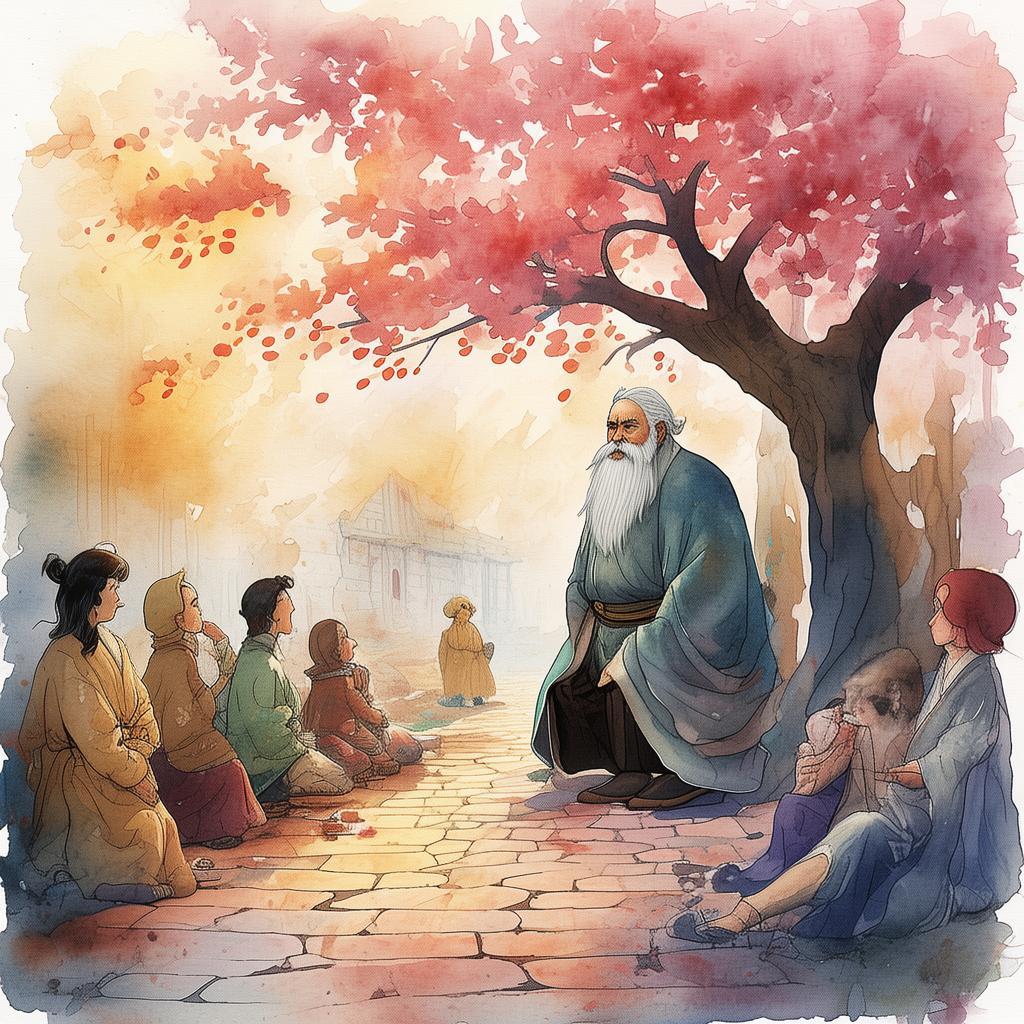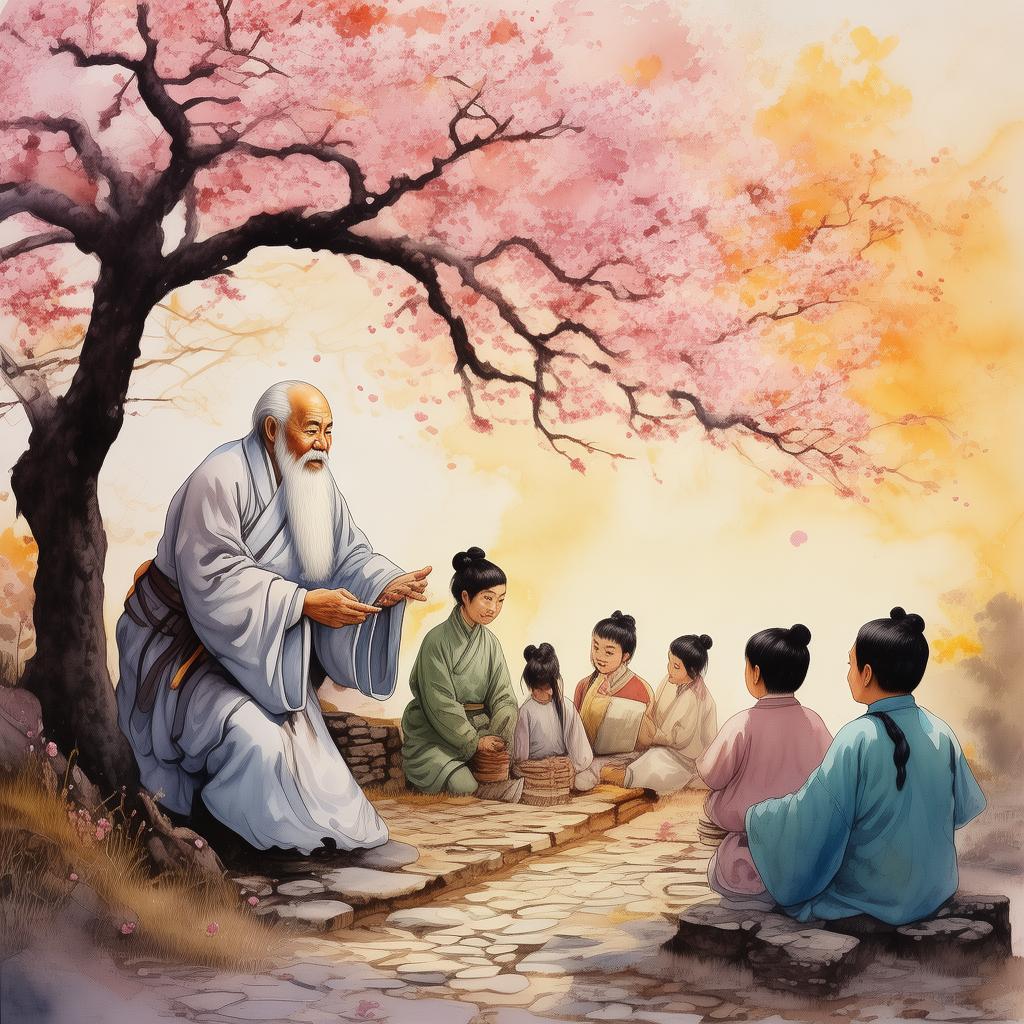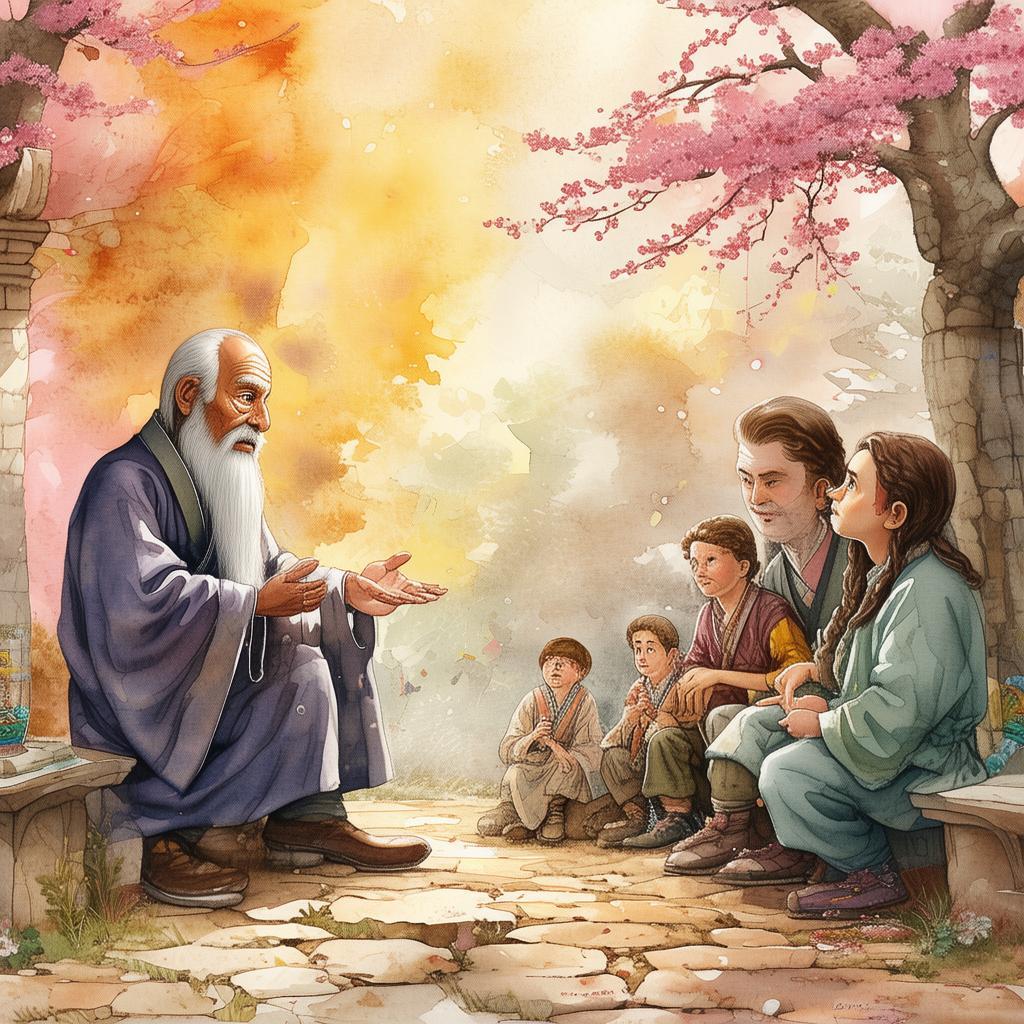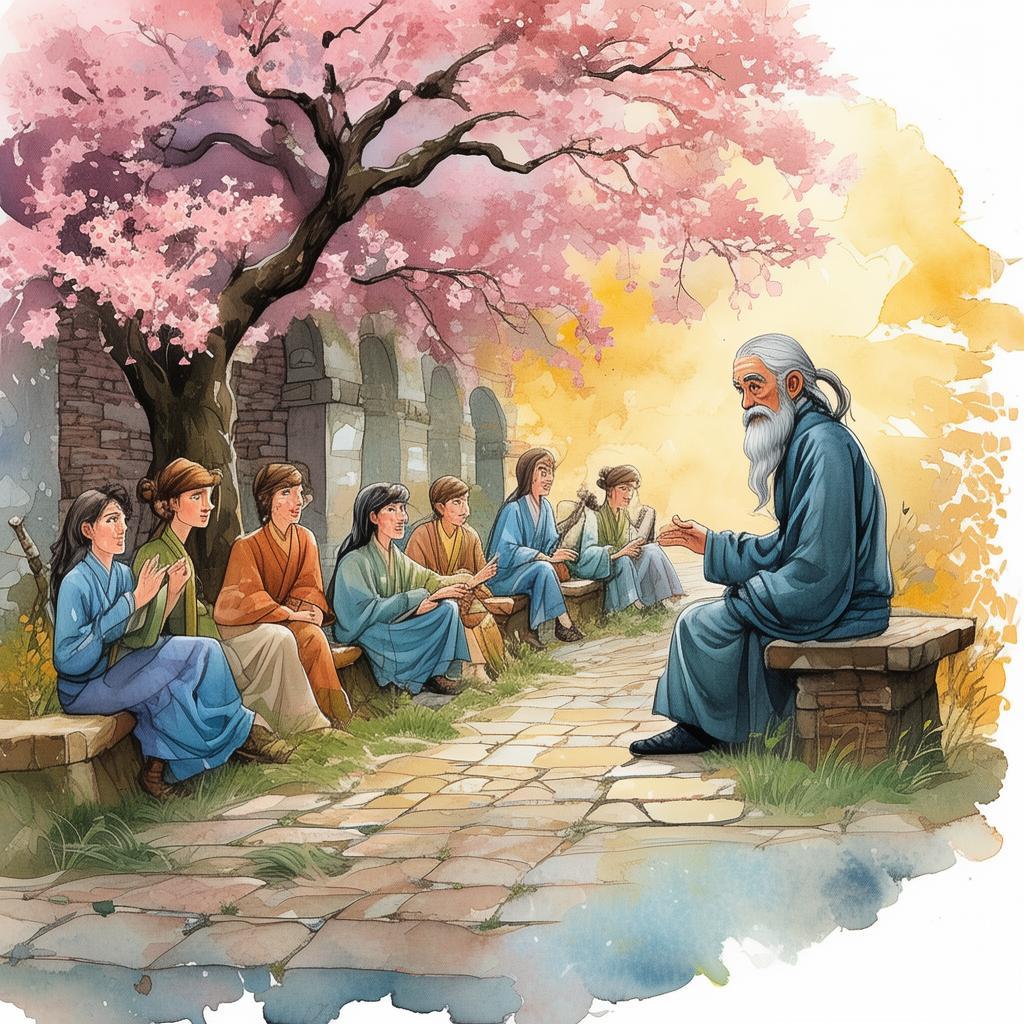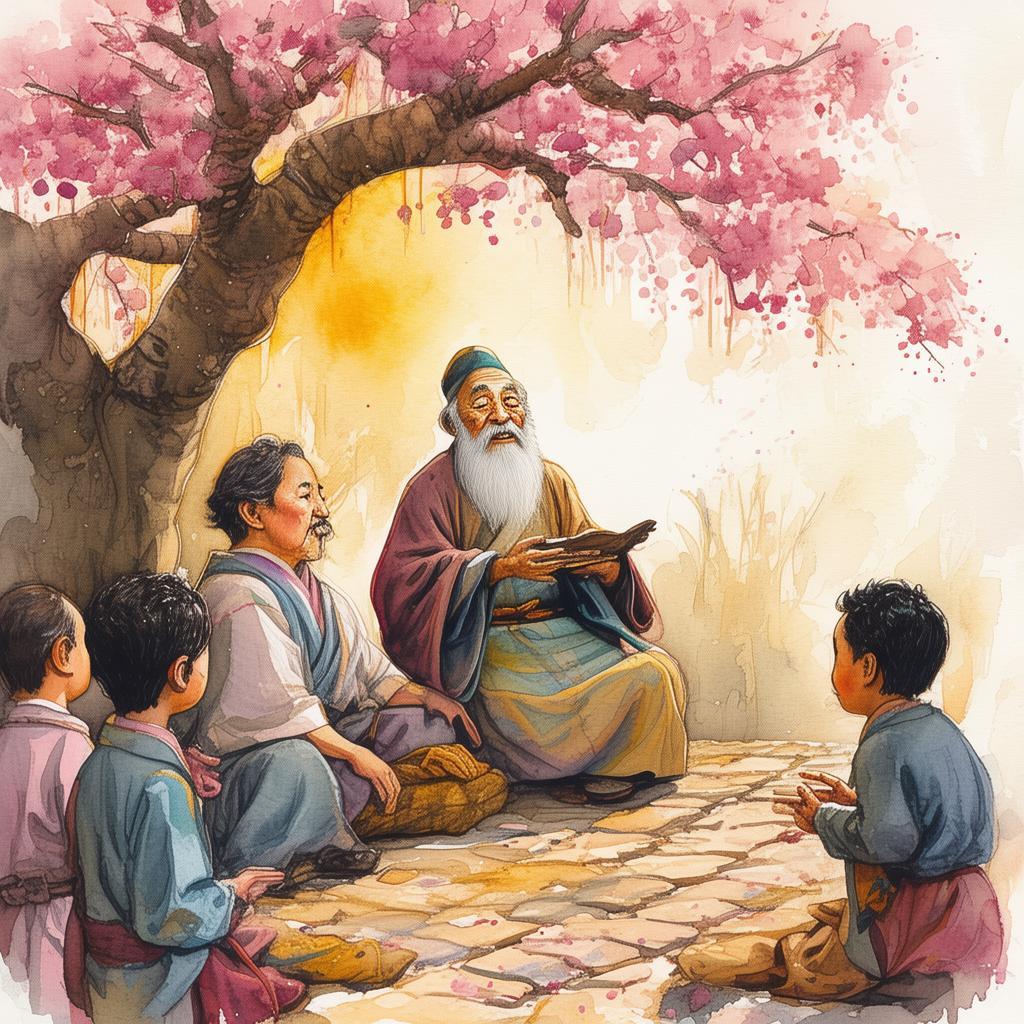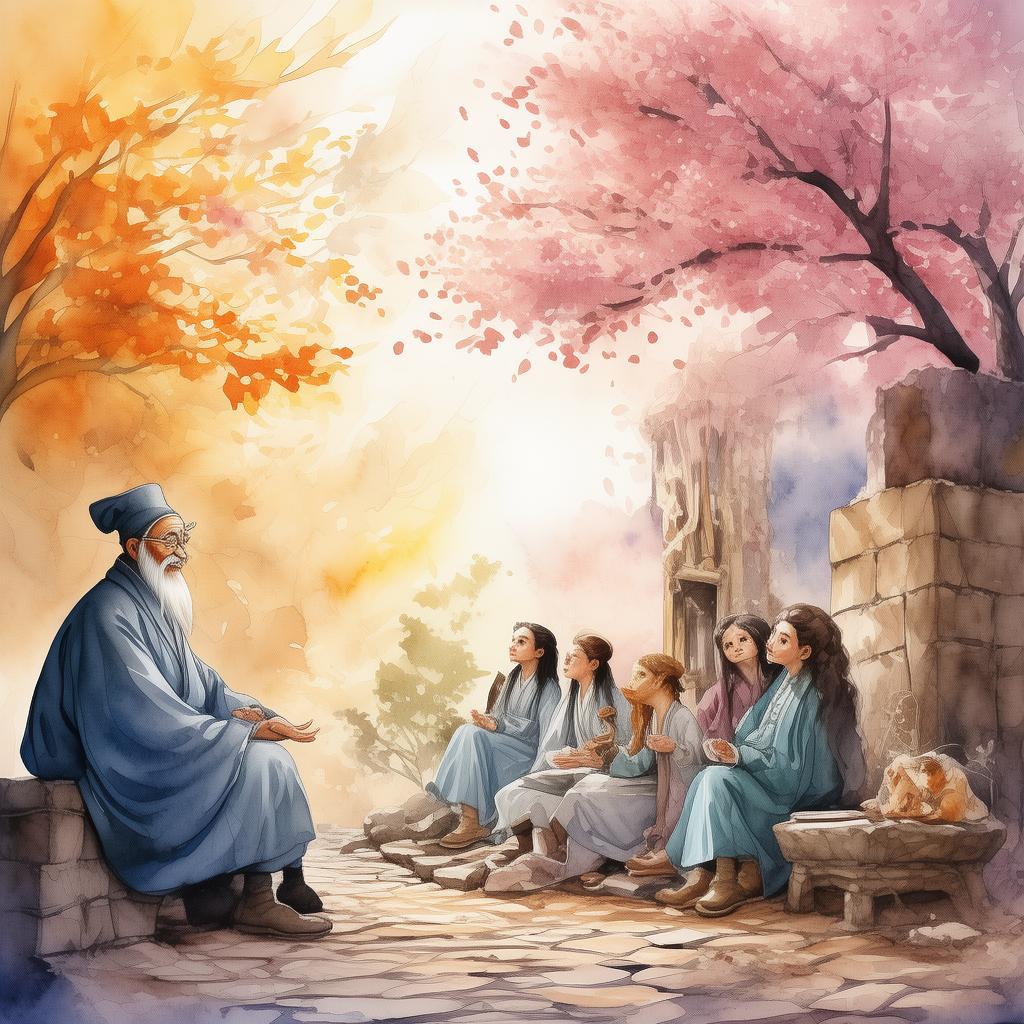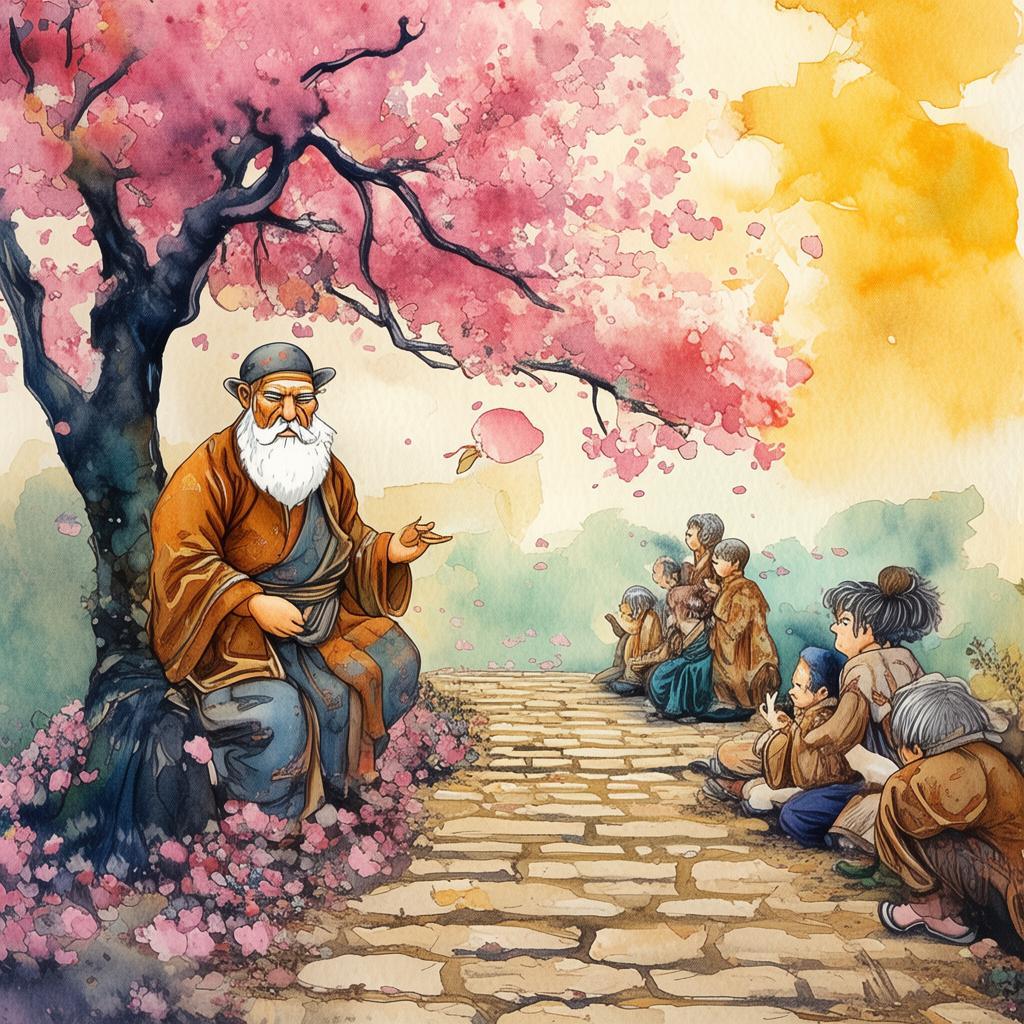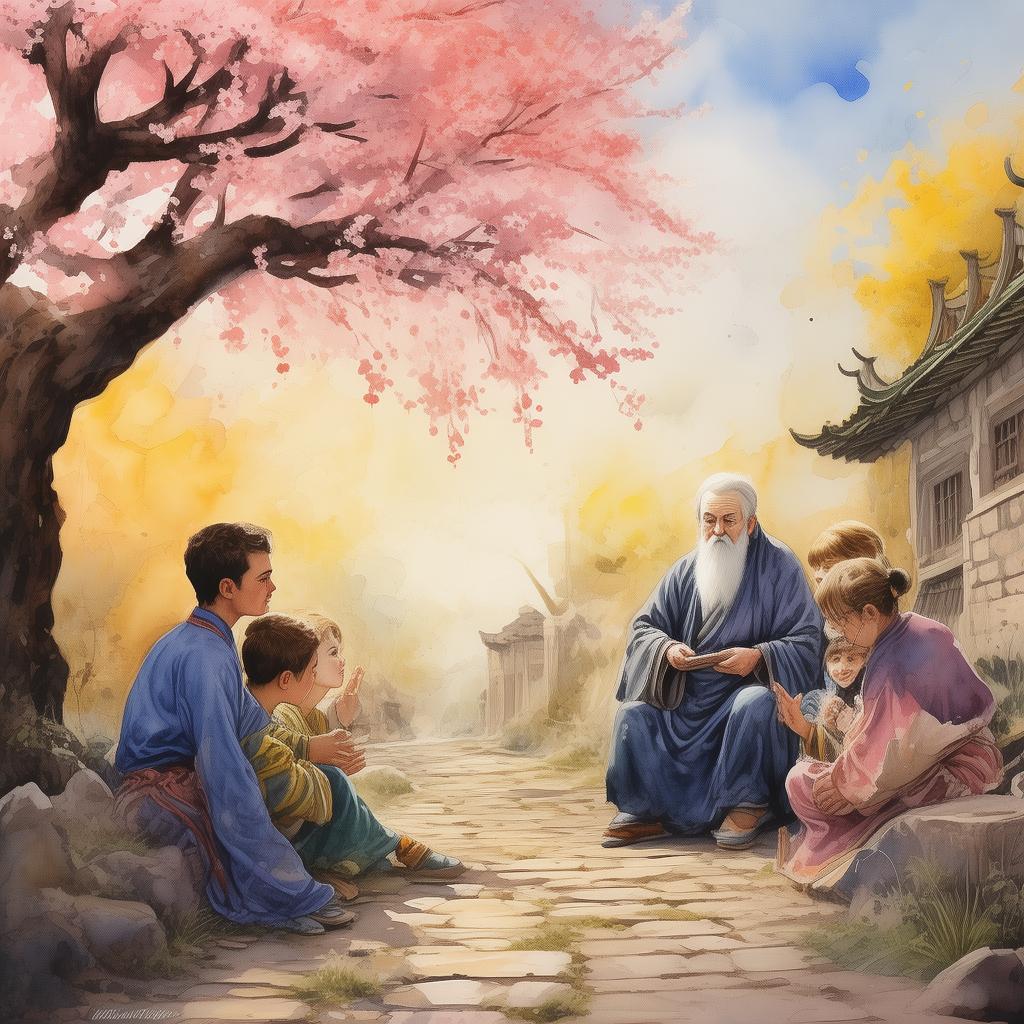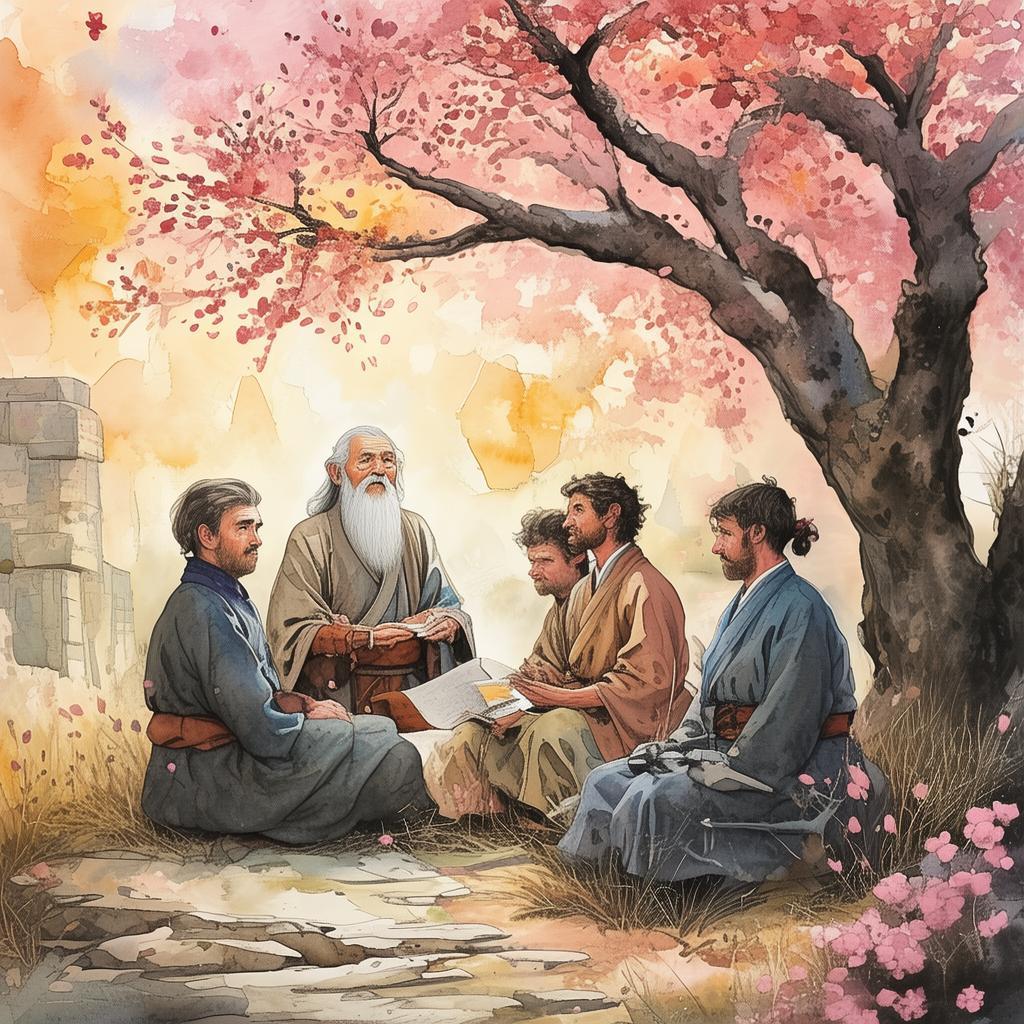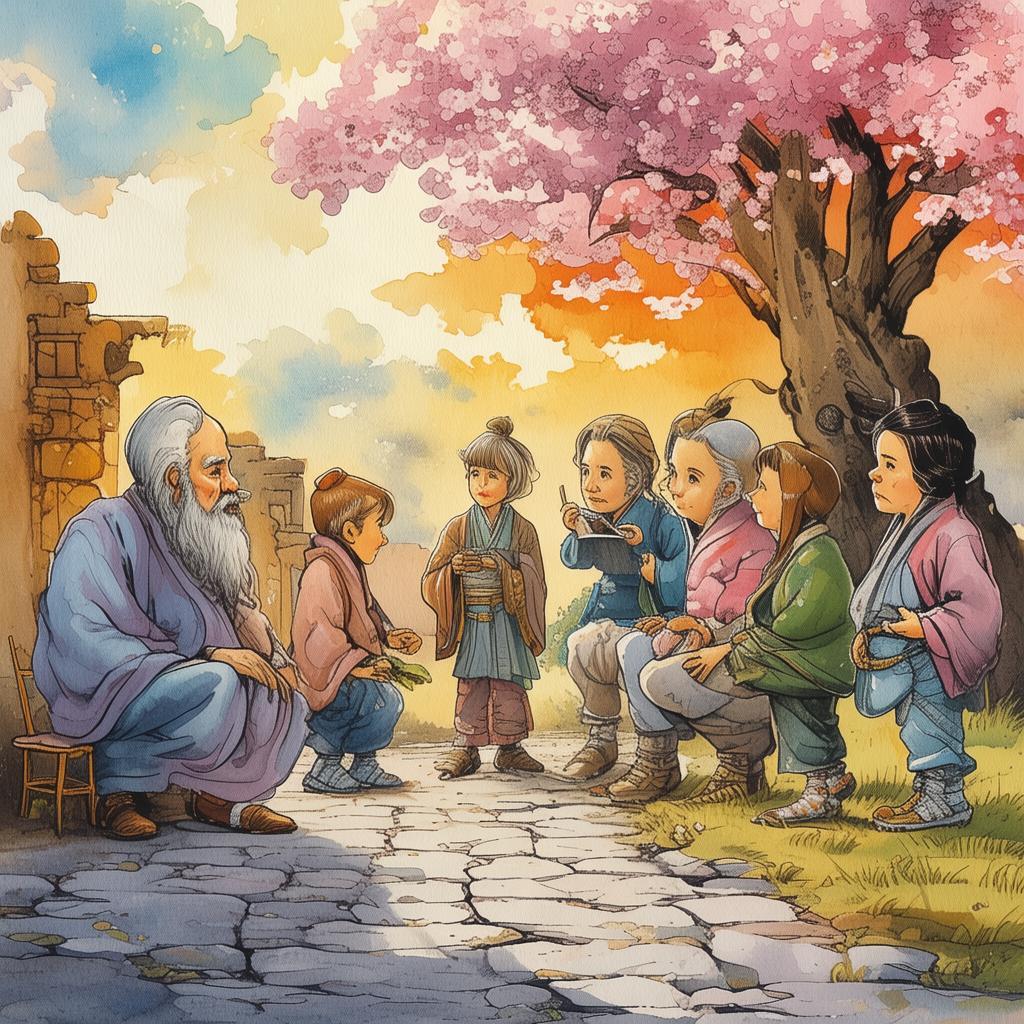Harmony of the Sages: Echoes of the Celestial Strings
In the ancient land of Jin, there was a legend that spoke of the musical muses, ethereal beings who could inspire composers to create music that transcended the human experience. Among the scholars, there was one who sought to understand the very essence of music and its power to heal, to soothe, and to reveal the deepest truths of the universe.
This scholar, named Jing, was known for his vast knowledge and his unyielding curiosity. He spent years studying the ancient texts, the works of the great composers, and the secrets of the cosmos. He believed that music was a language spoken by the stars, a language that could unlock the mysteries of the universe.
One evening, as Jing sat by his window, gazing at the night sky, he heard a soft, melodic whisper. It was the call of the musical muses, inviting him to a place where music and the cosmos were one. With a heart full of wonder and a mind eager for knowledge, Jing followed the melody, which led him to the ancient temple of the muses.
Inside the temple, the air was thick with the scent of incense and the sound of celestial strings resonating through the walls. Jing was greeted by the muses, ethereal figures with harps made of stardust. They spoke to him in a language that was both musical and poetic, a language that only the soul could understand.
The muses explained that music was the heartbeat of the universe, a force that connected all living things. They taught Jing the art of musical alchemy, a process by which one could combine the notes of the musical scale with the elements of the cosmos to create a symphony that could heal the world.
Jing returned to his study, his mind filled with the knowledge imparted by the muses. He began to compose a symphony, using the elements of the cosmos as his inspiration. He called it "The Scholar's Symphony," a work that would become legendary in its time.
As he played the symphony, the world around him seemed to change. The air was filled with a sense of peace and harmony, and the people who heard the music felt a profound connection to the universe. The symphony became a beacon of hope, a reminder that music could be a force for good in the world.
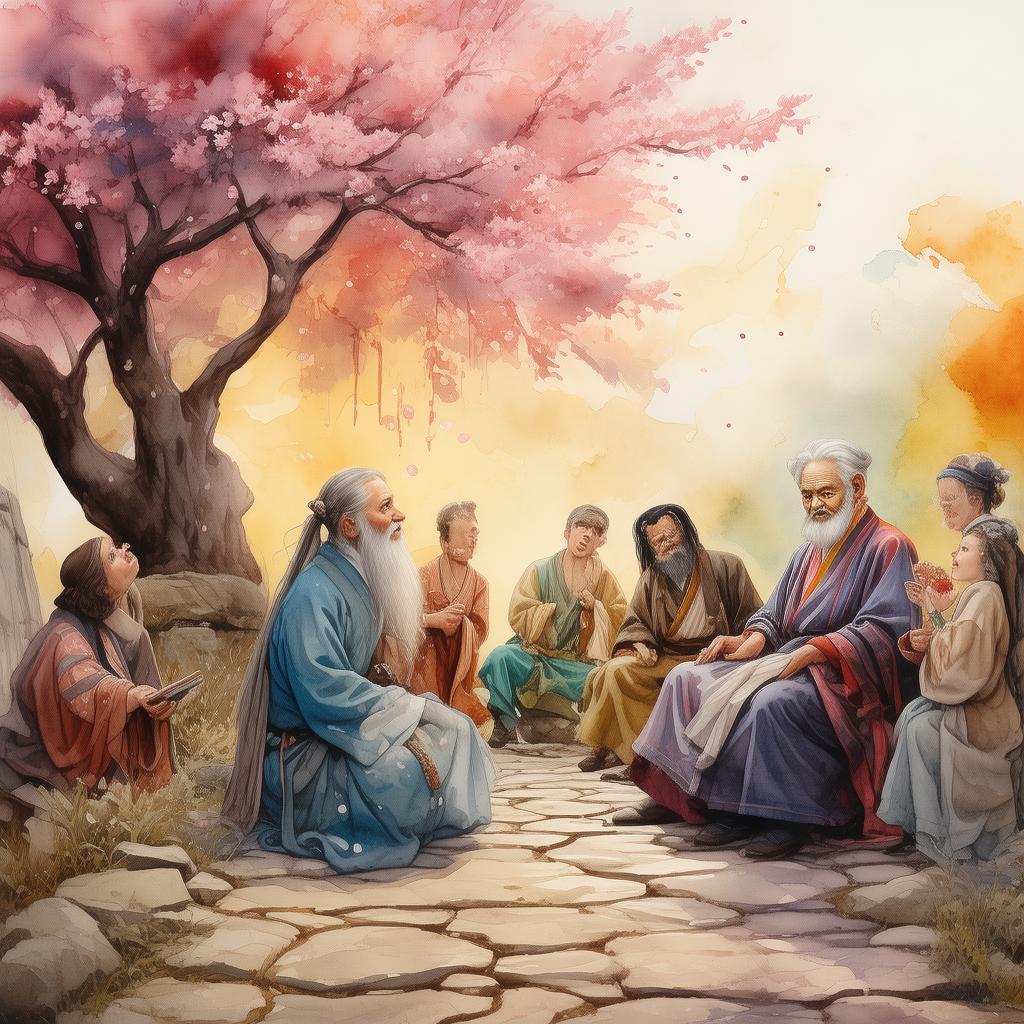
However, not everyone appreciated the power of the symphony. There were those who saw it as a threat to their own power and influence. They sought to silence Jing and destroy the symphony, believing that it held the power to unite the people against them.
In a climactic confrontation, Jing faced his enemies, his symphony playing in the background. The music was powerful, filling the air with a sense of destiny and purpose. As the final note resonated through the room, the enemies were struck by the power of the music, their resolve shattered, and they were forced to retreat.
Jing emerged from the confrontation victorious, his symphony having proven its power to unite and heal. He realized that music was not just a language spoken by the stars, but a force that could change the world.
The story of Jing and "The Scholar's Symphony" spread far and wide, inspiring scholars and musicians alike to seek the truth within music. It became a testament to the belief that music was a gift from the cosmos, a gift that could bring harmony to the world and reveal the deepest truths of the human soul.
In the end, Jing's symphony was not just a work of art, but a work of magic, a reminder that the power of music was a force to be reckoned with, a force that could heal the world and unite its people.
✨ Original Statement ✨
All articles published on this website (including but not limited to text, images, videos, and other content) are original or authorized for reposting and are protected by relevant laws. Without the explicit written permission of this website, no individual or organization may copy, modify, repost, or use the content for commercial purposes.
If you need to quote or cooperate, please contact this site for authorization. We reserve the right to pursue legal responsibility for any unauthorized use.
Hereby declared.
